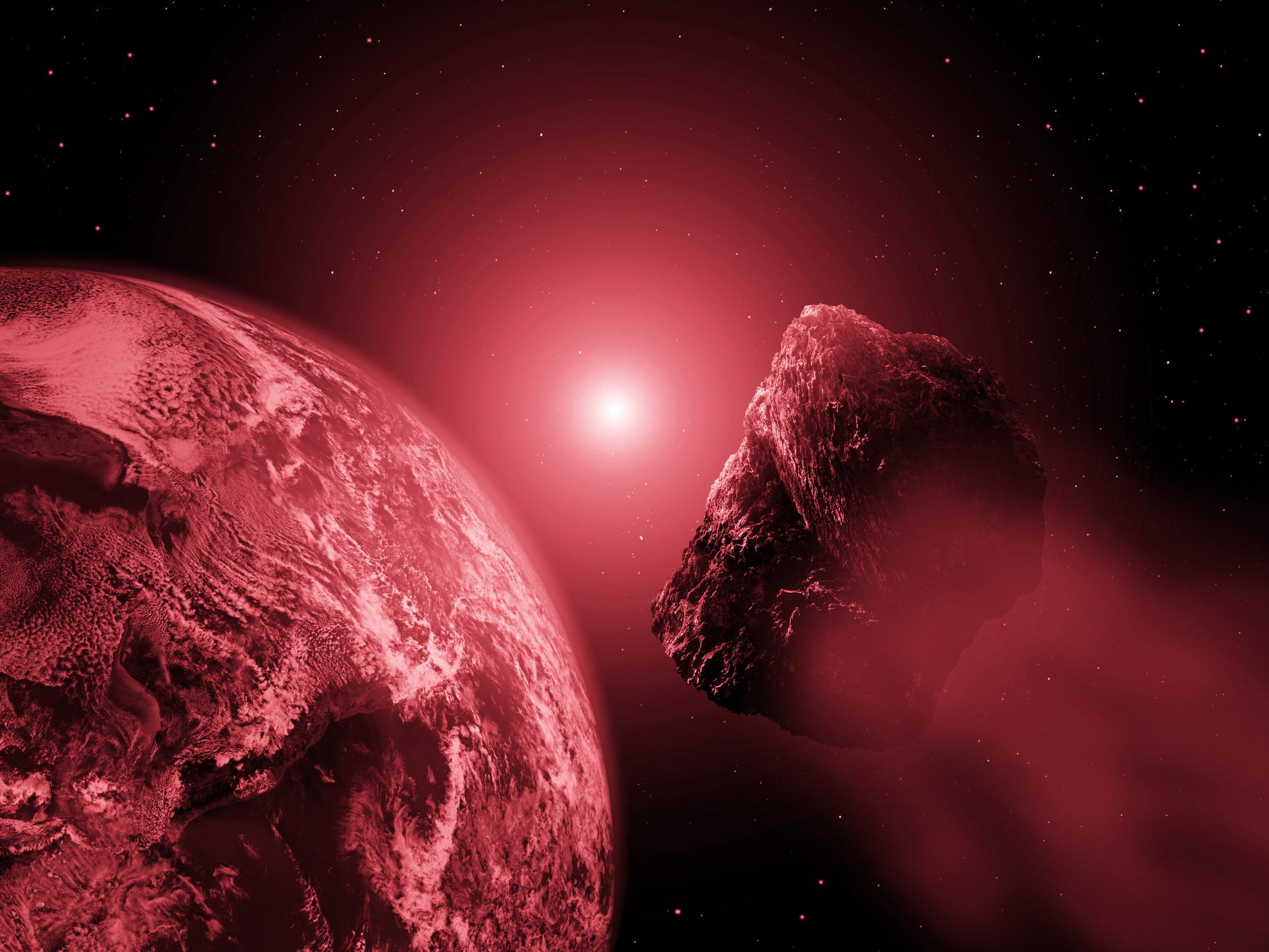The truth about the 'potentially hazardous' asteroid that is not going to hit Earth

An asteroid called 2016 NF23 is expected to “skim past” our planet in the next few days.
As it hurtles through space at a speed of over 20,000 miles per hour, a number of news reports have highlighted the “close approach” it will make towards Earth.
Given the potential devastation that could result from the collision, here The Independent looks at what this asteroid actually is and how likely it is to hit us.
What is the object in question?
NF23 is a relatively large asteroid that, according to current Nasa data, will make what the agency calls a “close approach” to Earth on 29 August.
It is classified as an “Atens” body, which means its orbit comes into the vicinity of Earth.
How big is it?
Some have described as bigger than the Great Pyramid of Giza, the Colosseum and the London Eye, while others have opted for more local comparisons using Leicester Cathedral and the Victoria shopping centre in Nottingham as the yardstick against which to measure this cosmic visitor.
Nasa estimates the asteroid is somewhere between 70 and 160m in diameter, meaning that if it was at the bigger end of the scale it would indeed rival major landmarks like the pyramid.
Is it going to hit Earth?
Almost certainly not. While Nasa has described the asteroid as “potentially hazardous”, it is expected to pass us by a distance of 3 million miles.
The diameter of the Earth is about 8,000 miles. Any object that comes within 4.6 million miles of the planet comes under the “potentially hazardous” category.
Other asteroids are actually expected to pass much closer to our planet in the coming days, although admittedly ones only measuring around 6m.
Nasa have previously issued a statement saying that “no asteroid currently known is predicted to impact Earth for the next 100 years”.
Subscribe to Independent Premium to bookmark this article
Want to bookmark your favourite articles and stories to read or reference later? Start your Independent Premium subscription today.

Join our commenting forum
Join thought-provoking conversations, follow other Independent readers and see their replies